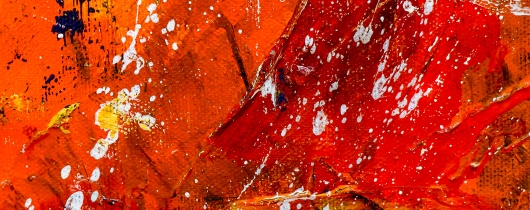Mess | Desorden

St. Sharbel Makhlūf
Exodus 24:3-8; Matthew 13:24-30
It must have made quite a mess. When Moses splashed the blood of sacrifice on the altar erected at Horeb and then sprinkled some of the blood on the people, the cleaning job must have been enormous. But for the people of Israel, it was worth it. They believed that blood, a sign of life, was necessary to seal their covenant with God.
Today we echo Moses’ gesture in the sprinkling rite we occasionally use at Mass, especially in the Easter season. The difference is that we use water rather than blood. It recalls the covenant that we have with God through our baptism…and it doesn’t require much cleaning up!
As we know, however, life is sometimes messy. The parable that Jesus uses in our gospel reading helps us to recall that virtue, vice, sin, and salvation, can grow within us at the same time. They do so in us individually, and they do so in us collectively, in the church. They may look similar or be two sides of the same coin. For example, having firm principles and beliefs is good, but they can also lead to rigidity. Compassion is a virtue, but without a sense of discipline and justice it can degenerate into permissiveness.
We need wisdom to discern the wheat and the weeds within and around us, what needs to be nurtured and what needs to be pulled. That wisdom, as Jesus points out, also requires time and patience, as well as the courage to act when it is necessary. - jc
--------------------------------------------------------------------------------------
Santa Sharbel Makhlūf
Éxodo 24:3-8; Mateo 13:24-30
Debió de armarse un buen lío. Cuando Moisés salpicó la sangre del sacrificio en el altar erigido en Horeb y luego roció parte de la sangre sobre el pueblo, el trabajo de limpieza debió ser enorme. Pero para el pueblo de Israel, valía la pena. Creían que la sangre, signo de vida, era necesaria para sellar su alianza con Dios.
Hoy nos hacemos eco del gesto de Moisés en el rito de la aspersión que utilizamos ocasionalmente en la misa, especialmente en el tiempo de Pascua. La diferencia es que utilizamos agua en lugar de sangre. Recuerda la alianza que tenemos con Dios a través de nuestro bautismo... ¡y no requiere mucha limpieza!
Sin embargo, como sabemos, la vida a veces es un desastre. La parábola que Jesús utiliza en nuestra lectura del Evangelio nos ayuda a recordar que la virtud, el vicio, el pecado y la salvación, pueden crecer en nosotros al mismo tiempo. Lo hacen en nosotros individualmente, y lo hacen en nosotros colectivamente, en la iglesia. Pueden parecer similares o ser dos caras de la misma moneda. Por ejemplo, tener principios y creencias firmes es bueno, pero también pueden conducir a la rigidez. La compasión es una virtud, pero sin un sentido de disciplina y justicia puede degenerar en permisividad.
Necesitamos sabiduría para discernir el trigo y la cizaña en nuestro interior y a nuestro alrededor, lo que hay que cultivar y lo que hay que arrancar. Esa sabiduría, como señala Jesús, también requiere tiempo y paciencia, así como el valor de actuar cuando sea necesario. - jc




